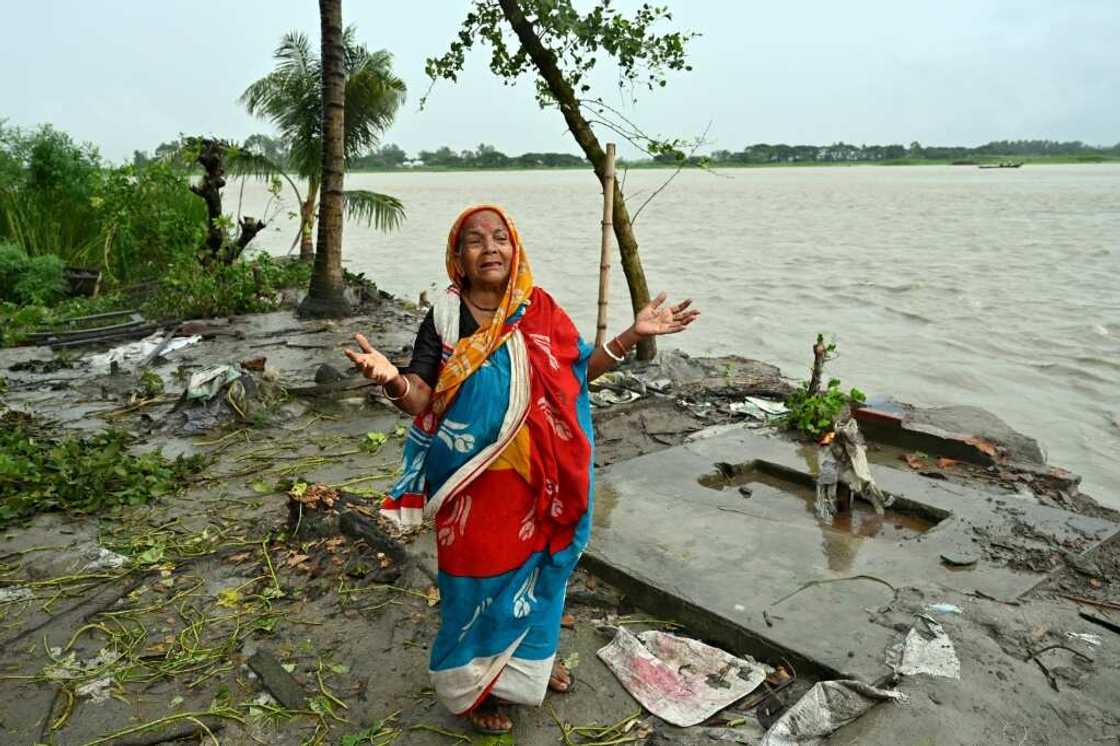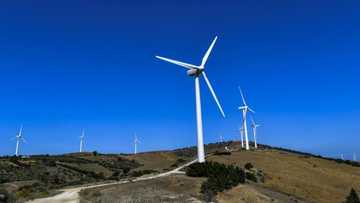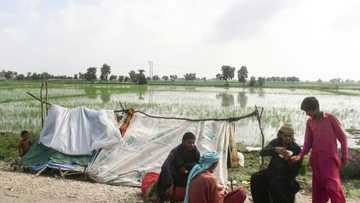Climate disaster aid scheme 'Global Shield' launched at COP27

Source: AFP
PAY ATTENTION: Click “See First” under the “Following” tab to see Legit.ng News on your Facebook News Feed!
A scheme to give speedy financial support to communities battered by climate disasters was launched Monday by a group of rich and developing nations at the UN COP27 summit in Egypt.
The "Global Shield against Climate Risks" comes as many of the most vulnerable nations are also demanding wider compensation for the "loss and damage" they have already suffered from a heating planet.
The initiative, backed by the G7 and launched with initial funding of more than $200 million, aims to provide "pre-arranged financial support designed to be quickly deployed in times of climate disasters".
The Global Shield project "is long overdue", said Ken Ofori-Atta, Ghana's finance minister and chair of the V20 group of nations most vulnerable to the effects of climate change.
"It has never been a question of who pays for loss and damage, because we are paying for it," he said in recorded remarks at the summit in the Egyptian resort of Sharm El-Sheikh.
"Our economies pay for it in lost growth prospects, our enterprises pay for it in business disruption, and our communities pay for it in lives and livelihoods lost."
PAY ATTENTION: Follow us on Instagram - get the most important news directly in your favourite app!
He said he hoped the project would help the most vulnerable communities but also aid wider understanding of the challenges emerging economies face as they are being hammered by climate-induced floods, heatwaves or droughts.
A first group of nations that will benefit from the scheme includes Bangladesh, Costa Rica, Fiji, Ghana, Pakistan, the Philippines and Senegal.
'Need protection now'
Nations at the COP27 agreed this year for the first time to include the thorny topic of loss and damage on the formal agenda, after years of reluctance from richer polluters wary of creating open-ended liability.
Germany said the Global Shield scheme, largely in the form of insurance that pays out immediately after -- or even before -- a climate disaster, would be part of a broader effort to respond to loss and damage.
Svenja Schulze, Germany's minister of economic cooperation and development, stressed that the scheme was not "a tactic" to sidestep calls for a specific loss and damage funding mechanism.
"The Global Shield isn't the one and only solution for loss and damage, certainly not," she said, adding that more funding will be needed to cover more countries.
"Those most affected by climate impacts need practical action now."
The Global Shield is designed to provide a range of financial, social and credit protection and insurance for loss of crops, livestock, property and other goods.
It also promises to support the swift delivery of funds for humanitarian agencies responding to disasters.
'Life and death'
A formal loss and damage funding stream would likely go further, also covering longer-onset climate impacts such as sea level rise and threats to cultural heritage.
Besides $170 million from Germany, funding includes $20 million from France, $10 million from Ireland, $7 million from Canada and $4.7 million from Denmark.
France later said its total commitment would be $60 million over three years.
The V20 bloc, made up of 58 developing nations, released research this year that estimated countries had lost some $525 billion to climate impacts since 2000.
Ninety-eight percent of the nearly 1.5 billion people in V20 countries do not have financial protection, it said.
"We're talking about people living under the poverty line, they're not going to be buying insurance," said Rachel Cleetus, lead economist at the Union of Concerned Scientists' climate programme.
"Insurance can help you up to a point but climate change is now creating conditions in many parts of the world that are beyond the bounds of what's insurable," she told AFP, referring to sea level rise, desertification and the mass displacement of populations.
Teresa Anderson of ActionAid International said the scheme showed that the global community recognised the need to act on loss and damage, but said it was a "distraction" from negotiations on a dedicated funding mechanism for climate damages.
"Everyone knows that insurance companies, by their very nature, are either reluctant to provide coverage, or reluctant to pay out," she said. "But when it comes to loss and damage, this is a matter of life and death."
Source: AFP





